#famous occultists
Text
Is Albertus Magnus just an antique way of saying Fat Albert?
#occult#alchemy#mysticism#alchemists#occultists#albertus magnus#famous occultists#notable figures#obukaybe fabba abbuh#fat Albert#famous alchemists
1 note
·
View note
Text


On this day:
VOYNICH MANUSCRIPT: MOST MYSTERIOUS MANUSCRIPT IN THE WORLD
On August 19, 1666, the rector of Prague University sent a letter and a manuscript to one of his former students, the Jesuit scholar Athanasius Kircher. The manuscript had lain forgotten in the monastery library in Frascati, Italy, for 250 years. It was obtained by Wilfred Voynich in 1912 and went on to be dubbed "the Most Mysterious Manuscript in the World."
Christened the Voynich, the six-by-nine-inch parchment codex appears to be a straightforward book. It is, however, over two hundred pages written in a code or unknown language that has never been deciphered. The text is elaborately illustrated with colored drawings of unknown plants and the sun, moon, and stars. Depictions of tiny naked women also frolic over the pages.
First appearing in history in 1586, the book was purchased for a then-outrageous sum of 600 ducats by the Holy Roman emperor, Rudolf II of Bohemia. One of the most eccentric European monarchs of the era, Rudolf collected dwarfs, had a regiment of giants in his army, and entertained all manner of magicians and alchemists. It has been suggested that the Voynich manuscript is the work of Roger Bacon, a famous English monk and scientist, and that it made its way to Prague via John Dee, a famous occultist of the time.
From dating of the vellum, pigments, calligraphy, and drawings, the manuscript is judged to be from the late thirteenth century. It has been labeled as everything from an illustrated herbal, to an alchemical treatise written in code to protect the contents, to an elaborate hoax. Its contents are roughly thought to be divided into sections of astronomy/astrology, biology, cosmology, pharmaceuticals, and recipes. After Voynich's widow died, the manuscript was sold to a book dealer and then donated to Yale University.
Text from: Almanac of the Infamous, the Incredible, and the Ignored by Juanita Rose Violins, published by Weiser Books, 2009
90 notes
·
View notes
Text
The archetype of the viking warrior was inspired by real vikings the same way as the archetype of the spellcasting wizard was inspired by real occultists.
And like wizards, it's a fantasy trope.
Yes, vikings existed in the sense that sea-rading Norsemen existed. But the image of vikings as these ruthless, long-haired, intimidating, ax-weilding warriors bound by oath and noble cause, actually comes from the Varangian Guard: the personal bodyguards of the Byzantine Emperor.
The members of the Varangian Guard were extremely formidable warriors and famous for their loyalty. They also consisted almost exclusively of Norseman for many centuries (due to their size, I bet). And though the Varangians would fight to the death for their loyalties, their loyalties were not with their country or gods like we envision with the trope of the viking warrior: It was with the Christian Emperor of Constantinople.
Unlike the vikings, the Varangian Guard was also a true warrior class. The vikings were pirates first and foremost, and while fightinf skills benefited their expeditions, equating them to the Varangian Guard is a bit like equating bandits to the marines.
I think the "warrior" aspect got tied to vikings due to the fact they're often portrayed as defenders of the Old Ways, standing their ground against the rise of Christianity. While this is certainly romantic, this is yet another fantasy trope.
The idea that vikings pillaged out of hatred for Christianity has its roots in the famous sacking of Lindisfarne monastery in 793. The monks painted this incident as a hate crime against Christianity, but it's far more likely that the vikings raided the monastery because it was undefended and filled with treasure. Either way, this is likely where their reputation of being blatantly anti-Christian came from.
This switched from being a vile thing to a noble one more than a millenium later, starting when the German Romantics reimagined the vikings as warriors. No longer where they antagonistic invaders, but a people defending their way of life from the chaos of a changing world.
The viking warrior exists in the sense that the trope exists. What makes it feel real is the fact that the trope is a shared cultural experience; we all agree that this is what "a viking" looks like. But the fact we all know and recognize this archetype doesn't mean the archetype was ever a real-life thing.
It's like how we all know "the history of King Arthur" even though he was never a real person.
315 notes
·
View notes
Text

Magdalen College, where the famous occultist, Simon Forman, studied 🌠
After a long practice as a medical magician, Forman died suddenly while in a boat crossing the Thames – on the date he had predicted for his death.
#oxford#magic#academia#college life#occult#magick#university#college#mine#classic academia#university of oxford#academia aesthetic#academia moodboard#summer#old building#tower#gardens#studyblr#magdalen college#vines
83 notes
·
View notes
Text

Nature Spirit
The inhabitants of the Elemental Kingdoms
Many people who are not clairvoyant wonder what fairies look like. The occultist and writer Bulwer-Lytton provides the answer in his famous novel Zanoni (reviewed in our books section of the website.) in which he says:
"Now, in space there are millions of beings not literally spiritual, for they have all, like the animalculae unseen by the naked eye, certain forms of matter, though matter so delicate, air-drawn, and subtle, that it is, as it were, but a film, a gossamer that clothes the spirit. Hence the Rosicrucian's lovely phantoms of sylph and gnome. Yet, in truth, these races and tribes differ more widely, each from each, than the Calmuc from the Greek,—differ in attributes and powers. In the drop of water you see how the animalculae vary, how vast and terrible are some of those monster mites as compared with others. Equally so with the inhabitants of the atmosphere: some of surpassing wisdom, some of horrible malignity; some hostile as fiends to men, others gentle as messengers between earth and heaven."
As ever, this peer among mystics sums up the whole matter in a few lines. The elemental beings who direct the invisible hidden forces that drive the great storms that rage across our planet may well be regarded as 'hostile as fiends to men'. Their work seems utterly destructive and cruel, often leaving thousands dead, injured and homeless from the devastation wrought by tsunamis and hurricanes. But such elementals are not 'evil'. They have no consciousness of self as we understand it, and therefore no concept of 'right' or 'wrong.' They are simply the unconscious or semi-conscious agents of the universal laws they serve. The occultist and seer, Geoffrey Hodson, three of whose books we review in the books section of our website, gives a very vivid and true description of such air elementals in his book Fairies at work and at play. We quote his description in full in our afterword to this article at right, together with other clairvoyant observations from his books.
What about those nature spirits which are 'gentle as messengers between earth and heaven' which Bulwer-Lytton also mentions? You can read about these heavenly messengers of beauty and joy in Geoffrey Hodson's lively descriptions in our extracts from his books in our afterword at right.
From the foregoing and the examples we give in our afterword, it will be clear that a comprehensive description of the inhabitants of the elemental kingdoms is an utter impossibility. One might as well try to count and classify human beings from a physical, emotional, mental and spiritual perspective, and then distil this down to a single statement. You may object that the writer Douglas Adams did just that when he described humanity as "mostly harmless" in his book The Hitchhiker's Guide to the Galaxy, but amusing as this statement may be, it does not really tell us very much about mankind. Were we to say that nature spirits are 'mostly good' you would probably very quickly stop reading this article and look for a more complete answer, and serve us right for our levity!
Those nature spirits in charge of the waters, the woods, the hills, the mountains are mostly entirely benevolent and loving in nature. There are, further, the cloud and wind Devas, who paint those magnificent pictures in the sky at sunrise and sunset which enthral all sensitive minds. Nature spirits are only one of the ranks or orders of spirits who compose the Hierarchy which rules the Universe under God. There are vast numbers of them and they are divided into three main classes: the Bodiless; the Form Devas; and the Passion Devas. The Bodiless ones belong to the highest realms of light, completely inaccessible to all but the greatest seers, and are composed of what we may call mental elemental Essence. Form Devas are of a lower grade of evolution, and while their bodies are composed also of the same Essence, they have no direct connection with mankind. The Passion Devas dwell in the Astral World, and their bodies are composed of Astral Elemental Essence, and these are the beings most commonly seen by clairvoyants.
35 notes
·
View notes
Text
the librarians s1e2 watch through:
okay to be fair to cassie, a lot of people would do a lot to survive, but also "bring magic back to the world to help everyone" does sound good (without adding the whole "we just have to kill people to do it & we’ll control it" etc). i mean, she’s only just learnt magic is real, she doesn’t know if the library are the good guys yet. can’t be a traitor if you weren’t loyal to them in the first place.
is charlene gonna be okay? does that mean she’s dead? :(((
"when are we" calm down dr who
i love how much ezekiel has thought about what he’d do if he were trapped in the past, same dude same
scully baird really isn’t getting the whole "magical wound from excalibur" thing huh??
you’re getting blood on the books, mate
aw they took ezekiel’s stolen goods off him :(
cassie that is not what enochian is. don’t you know anything about alleged antediluvian languages received from angels by 16th century occultists? smh 🙄 (/joking)
hes defeating magic with electromagnets
if the sword can save her then why can’t it save him?? surelyyyy
yeah! called it!
his pet dog sword is whimpering :((( gotta put him down :(((
lmao they were so wrapped up in the evil magic people that they forgot about the cops
they said charlene’s okay!!!
bob newhart seems to be leaving but i kinda assumed that from ep 1 and the fact he’s so famous
"they’re not qualified" eve my love you got here like yesterday
and the adventures continue!
24 notes
·
View notes
Text
Lesser-known historical figures that would be avatars in TMA
Ernest Shackleton - Explorer who tried to cross the Antarctic, almost died but him and his crew managed to survive out of puré stubbornes. Imagine if Peter was an avatar of the Vast instead of the Lonely.
Miyamoto Musashi - XV century Japanese samurai that loved nothing more than winning duels to the death, being obnoxiously rude, and painting. Running around Japan to this day as an avatar of the Slaughter.
Mary Mallon (Typhoid Mary) - Cook believed to have spread typhoid fever to dozens of families she worked for, even though she was asymptomatic. Unwilling Corruption avatar.
Philip Zimbardo - Director of the Standford Prison Experiment. Avatar of the Web and maked by the Eye.
Edward Hopper - Painter of Nighthawks. His entire work is about the loneliness and isolation of urban life. Lonely avatar who vanishes you into his paintings.
John Jones - Guy who died at the Nutty Putty Caves after being stuck upside down for 27 hours. Guess which entity he would serve.
Niccolò Paganini - Famous violinist rumoured to have made a deal with the devil in exchange for talent. Same deal as Grifters Bone.
Jack Parsons - Californian occultist, sex fanatic and inventor of rocket science who died of an explosion of his own creation, after becoming an avatar of the Eye.
Simo Häyhä- Slaughter avatar nicknamed the White Death, he's considered one of the best snipers in history with 505 confirmed kills.
Frederick Taylor - He developed the theory of Taylorism, a method of managing industrial production through science and one of the many reasons work is so awful nowadays. Probably is the Buried's special little boy.
#tma#the magnus archives#the magnus protocol#tmagp#I tried to only add people you probably haven't heard off#i might add more later#tell me if you have another one#history
33 notes
·
View notes
Text
I KNOW I've posted abt au names already but people are also bad at "swap au" names. The thing about gomens is that Aziraphale and Crowley are not and are not meant to be analogues for real-life theological figures. Within a swap au, there's no reason for Aziraphale to be named after a "real" demon or Crowley to be named after a "real" angel. "Aziraphale" is a made-up name that Gaiman and Pratchett thought "sounded angel-like" and "Crowley" is the name of a real occultist who became quite famous in British pop culture, especially with the misconception that he was a Satanist. Therefore, angel!Crowley needs to be named like a white Evangelical baby and demon!Aziraphale needs to be named, like, Blavatsky or something
#can i get away with blavatsky jokes on here or is that too deep of a cut#this is all in good fun of course i love a well-done swap au i love oopsie omens but jophiel and azazel are like 'real' theological figures#which doesn't fit in with the way their names were chosen! and i'm a freak so i like thinking about this stuff#open mick night#good omens#gomens#aziraphale#crowley#good omens swap au
22 notes
·
View notes
Text
Soldier On, Come Down - Chpt. 2. - - Ineffable Husbands WW2 au human!Crowley angel!Aziraphale angst multi-chapter
There was a knock on the door of the bookshop.
Azirphale looked up from his novel, sighing, and rose from his comfortable chair to answer it. Through the small window in the door, Aziraphale spotted a young, bespectacled woman frowning as she raised her fist to rap on the door again. Aziraphale hastily opened it. Aziraphale was about to tell her that the bookshop was not open, and to come again another time, before she pushed the door open, crowding Aziraphale, and marched uninvited into the bookshop.
Aziraphale watched in shock as the young woman crossed her arms.
“What are you?” she said in an American accent. She was looking at Aziraphale with a cross expression on her face and Aziraphale, who had no idea what was happening or why this strange, bossy, brightly dressed American was in his closed bookshop, just stared at her. Azirphale would have laughed if he wasn’t so confused. Out of all the things she had been expecting him to say, it wasn’t that. She was a human.
“I’m sorry.” Aziraphale said in his politest customer-service tone. The young girl looked like she was having none of it. “Whatever do you mean?”
“I can sense it.” She scrunched up her nose, and gestured around the place with her hands. ”You don’t feel human.”
The gravity of the situation finally seemed to set in. It was possible for the girl to have minor psychic capabilities. Possible, and highly, highly inconvenient. “My, dear,” Aziraphale tried to interrupt her. This was not how he had expected his day to go.
“I saw you. You healed my uncle and then you left. I saw the entire thing.”
Aziraphale froze.
“Don’t even think about it.” She stated firmly. Aziraphale, who had been thinking about erasing this whole encounter and the events before (especially that part) from her mind and setting her on her way, immediately stopped considering the possibility of getting out of this easily.
He also, admittedly, was slightly impressed. The human was bold, demanding Aziraphale to pay attention. She stood in her bright red dress, frowning, looking wholly out of place in Aziraphale’s beige and brown bookshop.
“So are you going to explain?”
Aziraphale sighed.
Her name was Anathema Device. Annie, she had insisted, for short. She wanted to know everything. This strange human girl had somehow managed not only to figure out that her uncle’s recovery was… divinely inspired. Not only that, but she had also somehow tracked Aziraphale back to his bookshop, despite the numerous miracles in place that should have made that impossible. Should have.
“It wasn’t easy.” She admitted over a second cup of tea. “I almost had trouble trying to re-locate it again today.”
Aziraphale nodded with understanding. Annie was indeed a human, and a self-proclaimed ‘occultist’. She was definitely a character.
She seemed to understand that the half-explanations Aziraphale offered were all she could reasonably expect to get out of the bookseller. What she really wanted to know was if there would be any lasting effects on her uncle – whose name was Crowley – and seemed pleased to know that he would be fine.
Aziraphale smiled as the young woman shrugged on her coat. By now, he figured erasing her mind would be a pointless endeavour. She waved at him as she exited the bookshop, and Aziraphale’s heart stopped when he saw a flash of red-hair on the pavement outside his bookshop.
*
Anathema watched as the white-haired man crouched down. It was hard to miss it, he stuck out like a sore thumb.
She had been running late to meet Crowley. Her conversation with Newt had drawn out. They had been arguing about the affluence of the Bronte sisters in America, in which Newt had insisted that, in his semester abroad in America (New York), he had heard not one person mention the famous literary sisters. Anathema had argued that Newt likely wasn’t hanging around interesting enough people, which seemed to shut him up about the whole thing.
She had hurried to The Dirty Donkey, which had fortunately not been too far from where she’d met Newt. She hoped Crowley hadn’t been waiting too long for her.
The stranger was crouched over a body. He seemed to flutter his hands suddenly, which Anathema found strange. Then, she felt it.
When he left, walking quickly, quietly down the not-empty street, Anathema hurried over to where the man had been. Her heart nearly stopped when she saw an unconscious Crowley,
*
Aziraphale couldn’t help the need that seized over him to make sure Crowley was alright. He was an angel, and it was his duty to guide and to help humankind. Checking in on the gentlemen from the alley was only polite. His duty, it was his duty.
Aziraphale decided to walk the mile to the bar he knew the human frequented from his conversation with his niece. Turns out, they lived near the bar, and were meant to have dinner the night Crowley was attacked.
As Aziraphale approached the bar, he paused, suddenly embarrassed with what he was doing. In all likelihood, he wasn’t even there and Aziraphale was just being foolish for hoping he’d see him there.
Aziraphale willed his legs to work, and entered the bar
His long legs crowded below the low and worn bar table. He seemed to be waiting for someone, probably Anathema.
“Hello.” Aziraphale greeted him nervously. He had stopped a foot short of the table, not wanting to intrude just in case suspected person suddenly showed up.
Crowley looked up at the sound of a voice. The glimmer of recognition clear in his eyes.
“It’s you.” He stated. Aziraphale nodded. So much for the checking up on him, he could barely formulate a sentence.
“Please, sit.” Crowley announced. Aziraphale’s eyes widened at him, but the human man gestured to the seat opposite him. Wordlessly, Aziraphale obliged.
He was back to wearing his glasses, and they did well to hiding some of the deep purple bruise Crowley was sporting. He looked, for the most part, unaffected by what had occurred the night before. This was good, excellent. Aziraphale had come here. He had done what he had meant to do.
Crowley was watching him. Aziraphale suddenly wished for the privacy sunglasses would afford him. Crowley made a gesture to the worker, and, after asking what Aziraphale wanted (“Wine. Red.” Aziraphale had finally given in when Crowley insisted he buy his companion a drink.) ordered. When the barmaid left, he turned back to Aziraphale, and spoke.
*
Crowley had woken at midday to what was possibly the worst hangover he had ever had the misfortune to experience.
There was a noise from beside him. Crowley pulled himself up slowly, his arms weak with sleep. Anathema was there in a moment. She was saying something, but his head was pounding relentlessly. A cold glass of water was thrust in his hand. Crowley drank from it.
“Are you feeling better?” she asked softly. Crowley made a sound, and handed her back the empty glass. She was still watching him nervously. He would ask later what happened, but he needed to sleep.
*
Crowley heard the whole strange tale, trying his best not to interrupts. Anathema was almost bouncing with excitement.
But when she had told her uncle in no uncertain terms to expect the blond gentlemen at the bar that evening (her intuition, she told him), he argued. It was ridiculous, all of it. Crowley had known Anathema had a power of sorts, though he did not fully understand the scope of it, and she was desperate to have the answers. Crowley was her unwilling accomplice.
(Though it wasn’t a small part of him that was curious. Besides, it was only good manners to thank the man who had saved your life.)
So Anathema had insisted on it, and Crowley found himself that evening sitting across from the most intriguing gentlemen he had ever seen.
*
“I was telling Anathema about this book of prophecies I’ve been trying to locate for the best part of fifteen years, and Anathema looks me straight in the eye and tells me she has a copy!”
Crowley snorted out a laugh that was probably too loud, as Aziraphale chuckled at the tale.
They had been sitting at the table for a while, by this point, and were multiple wine bottles deep into their discussion. Crowley had learnt that the man, whose name was Aziraphale, loved books. Crowley admittedly knew little about books, or prophecies, but found himself rapt by Aziraphale’s musings.
He had done this for Anathema, meeting with the gentlemen. But Crowley found himself actually enjoying the conversation, and Aziraphale hardly seemed deterred by Crowley’s stoic manner. It was nice, having a conversation with someone who made it feel like talking to him was the most natural thing in the world. Even if Aziraphale lead the conversation, Crowley hardly wanted to leave the conversation. He couldn’t remember the last time talking was nice.
“Oh dear, I’ve held you too long.” Aziraphale suddenly exclaimed. It was true. Crowley looked around, just noticing the empty chairs and tables. Aziraphale moved to stand clumsily. Crowley suddenly felt the urge to ask him to stay.
“Thank you, again.” Was what he said instead. Aziraphale looked at him anxiously, and gave him a small smile before hurrying out the door.
It was strange, but Crowley had done his duty and thanked the man. He picked up his hat, and stood up to go.
(Chapter two! I wanted to do more this chapter but the past week has been full with uni kicking in (ahhhhh), my birthday (19, i feel old) and me suddenly getting sick today which has led to me being bedridden. Either way, I'll aim to have chapter three up earlier on Friday next week. Stay hydrated xX)
#ineffable husbands#neil gaimen#good omens#david tennant#michael sheen#aziraphale#crowley#my writing#writing#creative writing#fanfiction#fanfiction writing#aziracrow#aziraphale x crowley#anthony j crowley#human!crowley#angel!aziraphale#ww2 fiction#ww2 au#england ww2#angst#romance
28 notes
·
View notes
Text
👹🧨👹
#demons#reptilians#idols#famous people#hollywood#they’re not human#invasion of humanity#crimes against humanity#occultists#satanic cult#cult#idolisation#satan worshiping#evil#fallen angels#standup#speaktruth#scam artists#truth wins#patriots#speak up#truth#please share#wwg1wga
0 notes
Text
Summary: After Addison, Arthur and John didn't go to New York - they just went home, and set up shop in as PIs in Arkham. Now several months later, having completed work for a wealthy client, they find themselves invited to a fancy dinner party with New England's elite occultists. But among the rich and famous diners are two unexpected guests: "Andrew" Larson, Arthur's one time nemesis, and Peter Yang, back from the dead but not quite right. After an awkward dinner, and an introduction to a mysterious supernatural artifact, a corpse is discovered. It's up to Arthur and John to solve the murder and stop the artifact before it unleashes its eldritch magic on them all.
Author: @croik
Author: THIS IS A CHOOSE YOUR OWN ADVENTURE FANFIC. How cool is that?? I've seen a few of these before but this one is especially fun and I loved going back to chapters I already read after discovering new parts of the overall mystery.
#official fic poll#haveyoureadthisfic#pollblr#fanfiction#fanfic#fandom culture#internet culture#tumblr polls#fandom poll#At the Stroke of Midnight#malevolent#John/Arthur/Parker/OC#John/Arthur#John/Arthur/OC#ao3
24 notes
·
View notes
Text
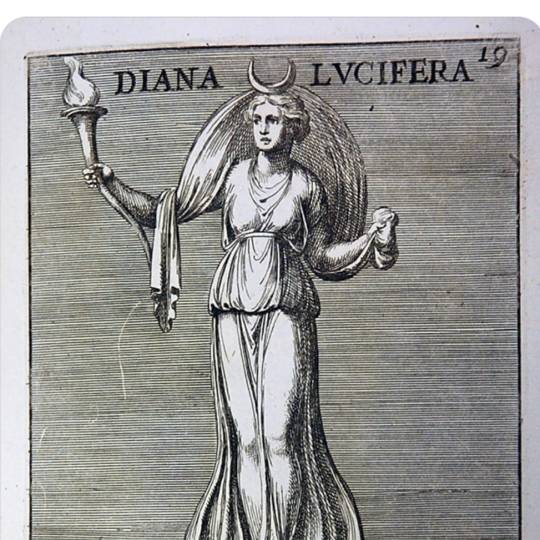
✨️Mari Lucifer✨️
In his book 'The Gnostics and Their Remains', Charles King equates the Gnostic Sophia with Venus Anadyomene (Venus Rising from the Sea) which appears on ancient magical gem stones as a naked damsel.
Manly Hall explains that Venus and Isis were names for Lucifer, telling us: "Being visible in the sky at sunset it was called Vesper, and as it rose before the Sun, it was called the Star of the Morning or Lucifer, meaning Light Bearer. Because of this relation to the Sun, the planet was also called Venus, Astarte, Aphrodite, Isis, and The Mother of the Gods".(The Secret Teachings of All Ages').
Magdalene is assumed by some to be interchangable with goddesses like Sophia, Isis, and Inanna. In his book 'Mary Magdalene The Illuminator', popular author William Henry tells us: 'Plutarch states that Isis was called Sophia.
She's also called Astarte, the goddess worshipped by Solomon. Each of these goddesses, in turn is the Babylonian goddess Inanna. Schonfield concludes that there is no doubt that the beautiful woman's head of the Templars represents Sophia in her female and Isis aspect -- and she was linked with Mary Magdalene in the Christian interpretation"..
The most famous occultist of the 20th - century Manly Hall, explains in his book 'The Secret Teachings of All Ages' that Isis "metamorphized' into the Virgin Mary.
Some scholars have tied the Virgin Mary to Magdalene. Theologian Cyril of Jerusalem held that the Virgin Mary was one and the same as Magdalene. In their book 'Jesus and
the Lost Goddess', Timothy Freke and Peter Gandy assert that the Virgin Mary and Magdalene in the Gospel accounts represent -- respectively, the higher Sophia and the fallen Sophia - aspects of the same character in the Sophianic myth.
Like Sophia, Magdalene was also associated with Venus. Rachel Geschwind (a professor in the Art History department at Youngstown State University) observes that in the 16th - century, paintings like Rossiglio's 'Conversion of the Magdalene' began to give Venus-like characteristics to Magdalene.
The explicit links between Magdalene and Venus perhaps point to Mary's true identity. When observed From Earth, Venus traces a perfect pentagram across the sky every eight years making a pattern of a rose.
This is known as the "Rose of Venus" or The "Pentagram of Venus". Magdalene is sometimes referred to as "The Rose" and those who diligently followed the Magdalene Mysteries were known as the "Initiates of the Rose Line".
In Southern France, Magdalene was known as Mary-Lucifera, connecting her to Lucifer. Isis and Diana were also known as Lucifera (see the book Magdalene Mysteries', by Seren Bertrand). As Author DeAnna Emerson tells us: "Inanna's name was altered to suit new languages. She was called Ishtar, Isis, Astarte, Diana, Venus, Magdalene -- one goddess with many names"
In his book The Templar Revelation', popular author Clive Prince tells us:
"As Nancy Qualls-Corbett and other recent commentators have pointed out, the depiction of Mary Magdalene in the Gnostic Gospels is that of illuminatrix and illuminator or Mary Lucifer, the Light-bringer -- the bestower of wisdom and enlightenment".
#mysticism#occultism#esoteric#venus#divine feminine#lux#aphrodite#lucifer#morningstar#mary#know thyself#knowledge#sophia#initiation#inanna
48 notes
·
View notes
Text
The Elden Ring is a Reference to 16th Century Occultism
Multiple YouTube channels have connected ideas and story concepts within Elden Ring to alchemy and other practices sometimes called "occult sciences", but I think the Elden Ring itself is the biggest hidden reference of all, specifically to the Hieroglyphic Monad of John Dee, a famous 16th century scryer and occultist who was court astrologer to Elizabeth I.
The Elden Ring as we know if governs the logic and order of the world (the purported "holism" of the Golden Order as Corhyn calls it), but it is made of constituent Great Runes that make up aspects of that order.
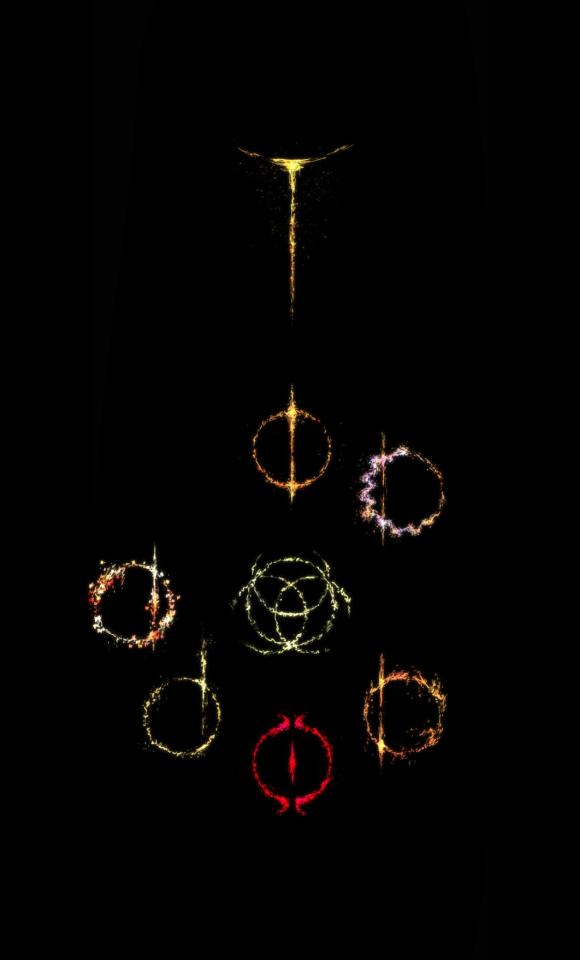
This bears a striking resemblance to the glyph shown in the text "Monas Hieroglyphica", published by John Dee in 1564. This glyph was purported to contain the secrets of astrology, alchemy and spiritual practice, "representing the unity of all creation influenced by celestial forces", a holistic view of the cosmos and the arcane knowledge within it contained within one symbol.
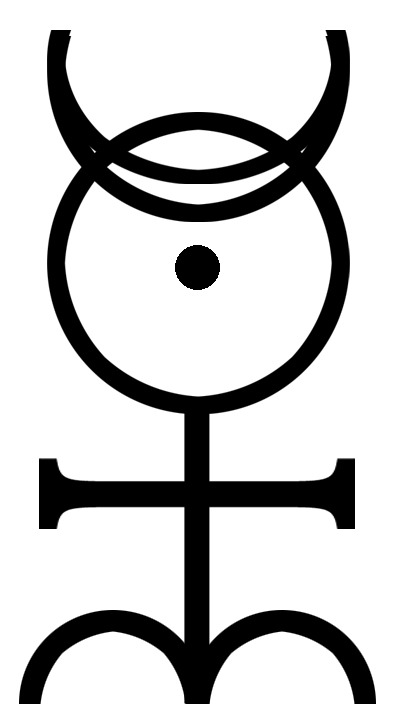
Look familiar?
It gets better, too, as the constituent parts of the Hieroglyphic Monad contain various astrological symbols, and can even be arranged (according to Dee) to look like alchemical equipment, showing the interconnectedness between all things.
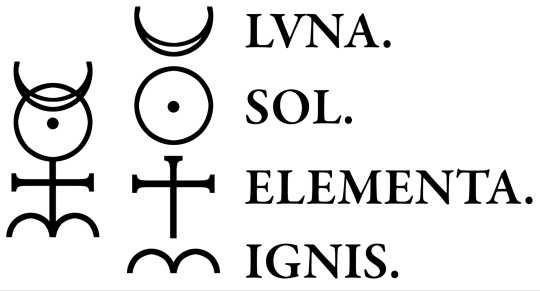
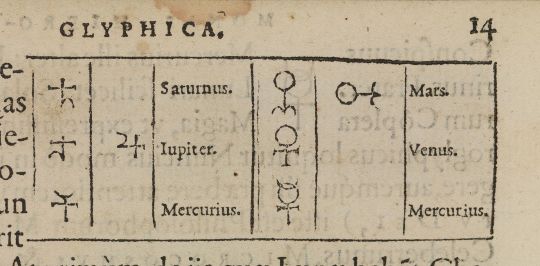
You could think of all these pieces of the Hieroglyphic Monad like the Great Runes of the Elden Ring, each representing a piece of the order governing the world, forming a coherent and functional whole once they are united.
Most of the arcane/alchemical discussion about Elden Ring focuses on the alchemical Rebis of Marika/Radagon or the Nox and their Silver Tears, but I haven't seen many people talking about the Elden Ring/Hieroglyphic Monad connection.
Thoughts?
#elden ring#shadow of the erdtree#john dee#Hieroglyphic monad#occultism#arcane#elden ring lore#elden ring theory#video games#fantasy#history#fromsoftware#fromsoftwaregames#soulsborne#souls games#elden ring lore theory
15 notes
·
View notes
Text
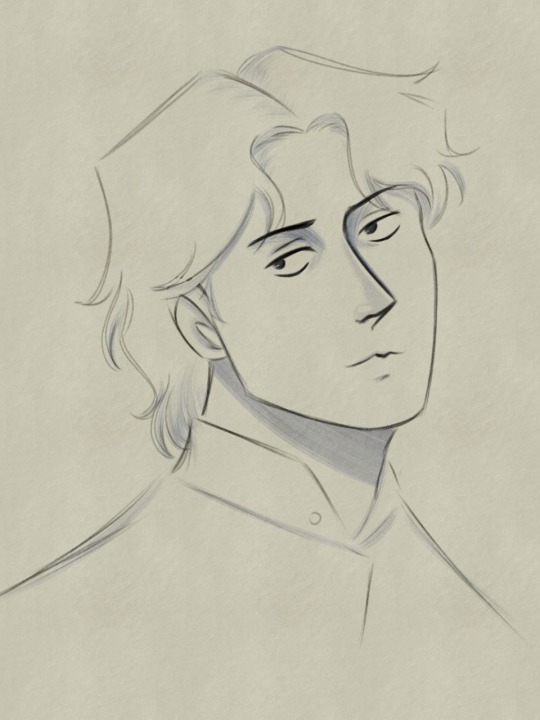
Companion of a famous occultist, brave and resourceful, willing to face danger alongside Crow in their quest to uncover the secrets of the cosmos and protect humanity from malevolent forces.
Allons dire bonjour
Henri-Laurent de Marigny
Henri made by @shapter-draws
#lovecraft#ask#art#cthulhu mythos#lovecrafian#artist on tumblr#Henri-Laurent de Marigny#Brian Lumley
14 notes
·
View notes
Text
Having a difficult time coming up with something that fits. Thoughts?
#alastor hazbin hotel#fem alastor#fem!alastor#female alastor#genderbent alastor#hazbin hotel#poll#rule 63 alastor
19 notes
·
View notes
Note
all “female” celebrities and famous models were born male, which is why they can get so skinny. real women and girls would die of starvation before ever looking like the stick-thin MTFs on tv, because we are inherently designed differently. research and observe it for yourself. the “elite” class are androgynous occultists, satanists, and liars. nothing they present to us is normal or good. it’s evil, inverted and was intended to cause humanity harm from day one. normal people can’t look like these demons and they shouldn’t want to. free yourselves from their mental and spiritual slavery for your own good
u need more help then me love
#eating disoder things#anamia#ed recipes#mealsp0#ana#ana blog#thinspo#thinspii#thinsp0#ed blog#ed not ed sheeran#ed vent#ed not sheeren#ed disorder#ed tmblr#ana shit#tw ana diary#tw ana#tw ed#tw eating things
35 notes
·
View notes